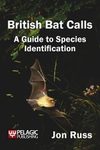About this book
Estuarine and coastal waters are acknowledged centres for anthropogenic impacts. Superimposed on the complex natural interactions between land, rivers and sea are the myriad consequences of human activity – a spectrum ranging from locally polluting effluents to some of the severest consequences of global climate change. For practitioners, academics and students in the field of coastal science and policy, Challenges in Estuarine and Coastal Science examines and exemplifies current and future challenges: from upper estuaries to open coasts and adjacent seas; from tropical to temperate latitudes; from Europe to Australia.
This authoritative volume marks the 50th anniversary of the Estuarine and Coastal Sciences Association and contains a prologue by founding member Professor Richard Barnes and a short history of the Association. Individual chapters then address coastal erosion and deposition; open shores to estuaries and deltas; marine plastics; coastal squeeze and habitat loss; tidal freshwaters – saline incursion and estuarine squeeze; restoration management using remote data collection; carbon storage; species distribution and non-natives; shorebirds; Modelling environmental change; physical processes such as sediments and modelling; sea-level rise and estuarine tidal dynamics; estuaries as fish nurseries; policy versus reality in coastal conservation; developments in Estuarine, coastal and marine management.
Contents
Preface / John Humphreys and Sally Little
Prologue / Richard S.K. Barnes
Foreword: The Origins and History of the Estuarine and Coastal Sciences Association / Martin Wilkinson and Donald McLusky
1. Morphodynamics of Tropical Atlantic River Mouths and their Adjacent Shorelines / Helene Burningham, Silvia Palotti Polizel and Awa Bousso Dramé
2. Coastal Erosion and Management Challenges in the United Kingdom / Kenneth Pye and Simon J. Blott
3. Challenges of Sea-level Rise on Estuarine Tidal Dynamics / Danial Khojasteh, Jamie Ruprecht, Katrina Waddington, Hamed Moftakhari, Amir AghaKouchak and William Glamore
4. Estimating the Residence Time in Estuaries: Methods and Application / Paula Birocchi, Juliana Correa Neiva Ferreira and Marcelo Dottori
5. Coastal and Estuarine Physical Processes: Looking Back, Looking Forwards / Steven B. Mitchell and Reginald J. Uncles
6. Marine Plastics: Emerging Challenges and Priorities for Estuaries and Coasts / Anthony W. Gallagher, Malcolm D. Hudson, Oliver T. Brooks and Jessica L. Stead
7. Estuarine Tidal Freshwater Zones in a Changing Climate: Meeting the Challenge of Saline Incursion and Estuarine Squeeze / Sally Little, Jonathan P. Lewis, Helen Pietkiewicz and Krysia Mazik
8. Defining Habitat Losses due to Coastal Squeeze / Nigel Pontee, James A. Tempest, Kenneth Pye and Simon J. Blott
9. Carbon Storage in UK Intertidal Environments / William E.N. Austin, Craig Smeaton, Paulina Ruranska, David M. Paterson, Martin W. Skov, Cai J.T. Ladd, Lucy McMahon, Glenn M. Havelock, Roland Gehrels, Rob Mills, Natasha L.M. Barlow, Annette Burden, Laurence Jones and Angus Garbutt
10. Created Coastal Wetlands as Carbon Stores: Potential Challenges and Opportunities / Hannah L. Mossman, Martin J.P. Sullivan, Rachel M. Dunk, Stuart Rae, Robert Sparkes, James Tempest and Nigel Pontee
11. Coastal Habitat Restoration, Invasive Species and Remote Monitoring Solutions / Sophie Walker, Nathan Waltham, Christina Buelow and Jordan Iles
12. Multi-decadal Responses of Coastal Ecosystems to Climate Change, Pollution and Non-indigenous Species in the Western and Mid-English Channel / Roger J.H. Herbert, Guillaume Corbeau, Laurent Godet, Nicolas Desroy, Nova Mieszkowska, Louise B. Firth, Alice E. Hall and Stephen J. Hawkins
13. Predicting the Effect of Environmental Change on Non-breeding Shorebirds with Individual-based Modelling / John D. Goss-Custard and Richard A. Stillman
14. The Role of Estuaries and Coastal Areas as Nurseries for Fish: Concepts, Methodological Challenges and Future Perspectives / Henrique Cabral
15. Marine Conservation: Smoke and Mirrors in the Coastal Zone / John Humphreys
16. Lessons from the Past Half-Century: Challenges, Opportunities and Priorities for Future Estuarine, Coastal and Marine Management / Michael Elliott and Alan Whitfield
Conclusions: Trajectories and Challenges in Estuarine and Coastal Science / John Humphreys and Sally Little
Index
Customer Reviews
Biography
John Humphreys is a professor of marine biology and former Pro Vice-chancellor at the University of Greenwich, London, where his work in Africa won a Queen’s Award for Higher Education. He has served as Chair of the Southern Inshore Fisheries and Conservation Authority and as a non-executive director of a commercial port and harbour authority. He is currently President-elect of the Estuarine and Coastal Sciences Association and a Fellow of the Royal Society of Biology. His books include Marine Protected Areas: Science, Policy and Management (2020).
Sally Little is ECSA President and a Senior Lecturer at Nottingham Trent University. Her research focuses on assessing the impact of environmental, climatic and other anthropogenic pressures on the structural and functional ecology of estuarine ecosystems, with a particular focus on upper estuarine tidal freshwater zones.


































